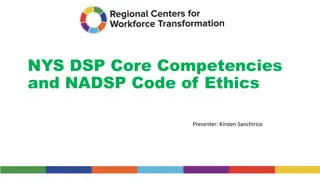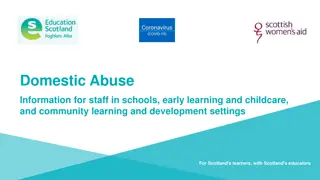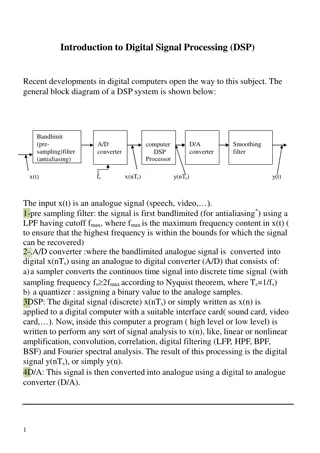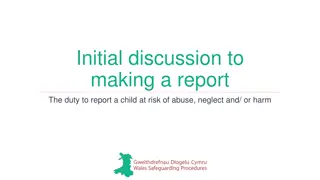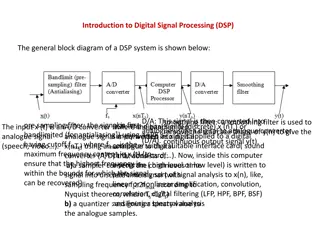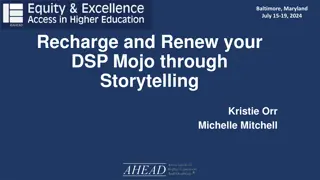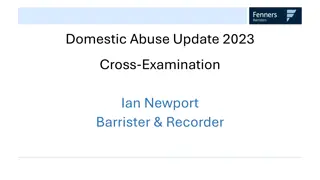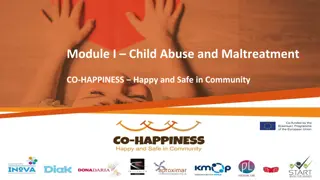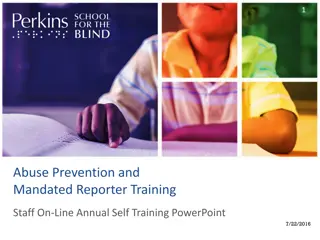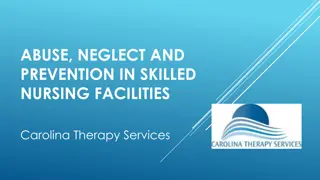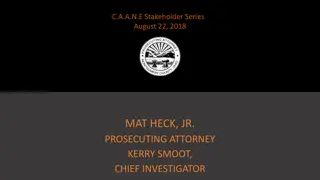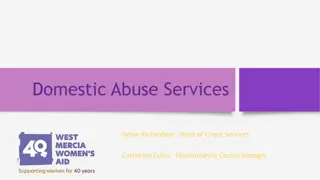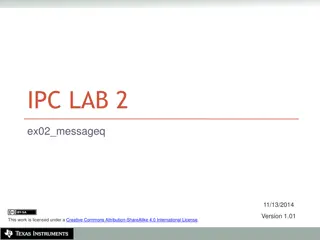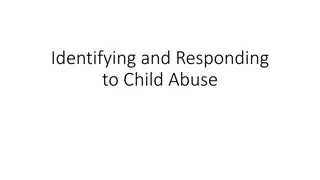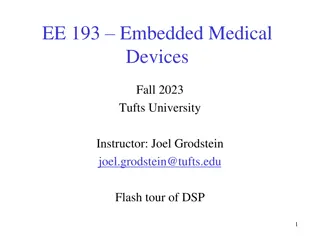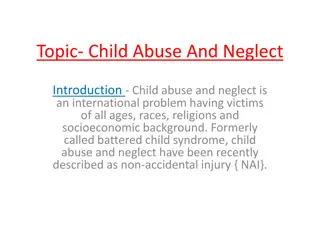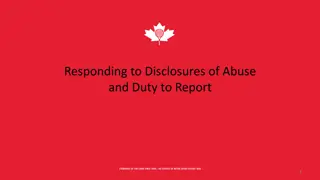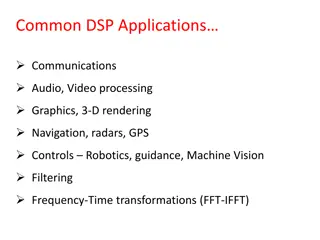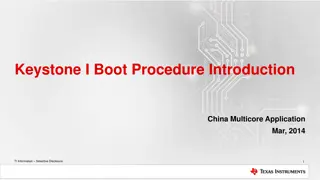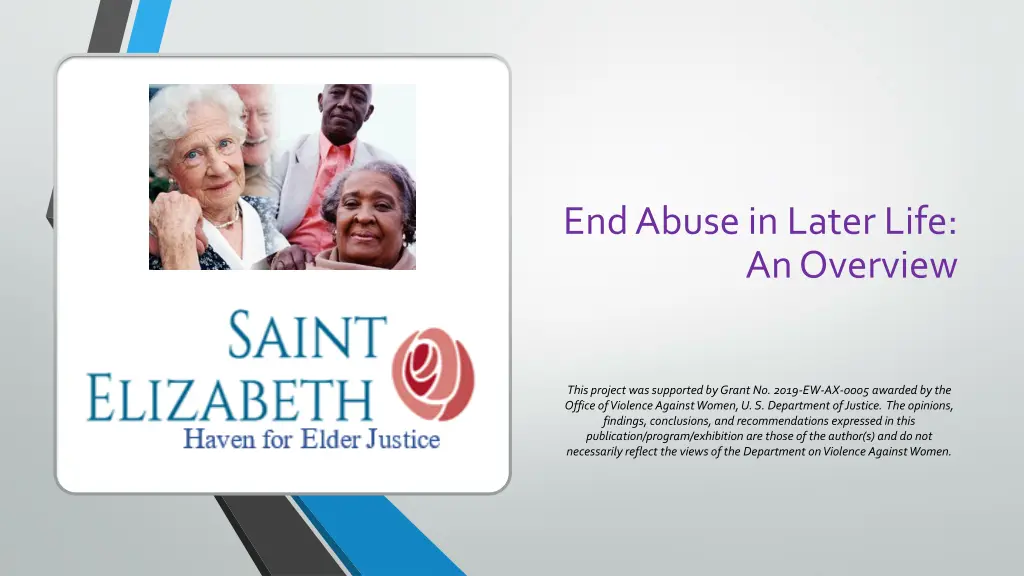
Understanding Elder Abuse in Later Life
Learn about elder abuse, including its types such as physical, sexual, psychological, intentional neglect, and financial exploitation. Explore the signs of elder abuse and why it remains largely unreported, being known as the silent epidemic. Discover the reasons why older adults may not report abuse and the important factors contributing to this hidden problem.
Download Presentation

Please find below an Image/Link to download the presentation.
The content on the website is provided AS IS for your information and personal use only. It may not be sold, licensed, or shared on other websites without obtaining consent from the author. If you encounter any issues during the download, it is possible that the publisher has removed the file from their server.
You are allowed to download the files provided on this website for personal or commercial use, subject to the condition that they are used lawfully. All files are the property of their respective owners.
The content on the website is provided AS IS for your information and personal use only. It may not be sold, licensed, or shared on other websites without obtaining consent from the author.
E N D
Presentation Transcript
End Abuse in Later Life: An Overview This project was supported by Grant No. 2019-EW-AX-0005 awarded by the Office of Violence Against Women, U. S. Department of Justice. The opinions, findings, conclusions, and recommendations expressed in this publication/program/exhibition are those of the author(s) and do not necessarily reflect the views of the Department on Violence Against Women.
WHAT IS ELDER ABUSE? Elder abuse is the mistreatment of older adults. It is an act of Power and Control over an individual. There are 5 types of abuse. PHYSICAL: Use of force causing pain or injury; inappropriate use of medications or physical restraints SEXUAL: Non-consensual sexual contact PSYCHOLOGICAL: Mistreatment that affects emotional or mental health, intimidation, threats, harassment, humiliation, isolation, belittlement
WHAT IS ELDER ABUSE cont. INTENTIONAL NEGLECT: Deprivation of food, clothing, shelter, medicine, or good personal hygiene. This does not include self neglect. FINANCIAL EXPLOITATION: Misuse of money, property, or resources AN OLDER VICTIM IS LIKELY TO EXPERIERCE C0-OCCURANCE OR MULTIPLE FORMS OF ABUSE
WHAT ARE SOME OF THE SIGNS OF ELDER ABUSE? Unexplained injuries, bruises, burns Does not know personal finances Unexplained changes in health and personal hygiene Dependency of adult child or caregiver for income and/or shelter Unauthorized withdrawal of funds or use of credit cards Excessive fears, withdrawal, agitation Sudden inability to pay bills, buy food or personal items Changes in appetite: unusual weight gain or loss
ELDER ABUSE IS CALLED THE SILENT EPIDEMIC BECAUSE ONLY 1 ABUSE CASE IN EVERY 10 IS REPORTED ELDER ABUSE IS A HIDDEN PROBLEM AND TENDS TO BE COMMITTED IN THE PRIVACY OF AN OLDER PERSON S HOME REASONS ELDERS DO NOT REPORT ELDER ABUSE INCLUDE: Fear of losing their home Fear of losing their caregiver Fear of retaliation Cultural values Gender Identity Trauma, both acute and historical Mistrust of government and agencies Fear of being institutionalized Isolation
ELDER ABUSE IS CALLED THE SILENT EPIDEMIC BECAUSE Cont. REASONS PROFESSIONALS DO NOT REPORT ELDER ABUSE: Lack of knowledge (training) Not recognizing abuse when we see it Not knowing what the law demands Ageism, homophobism, cultural values
HOW CAN WE HELP OLDER ADULTS PROTECT THEMSELVES OR OTHER OLDER ADULTS? As a matter of practice when speaking with older adults, gently remind them that they should always feel safe, and they should protect themselves. Tell someone if you feel unsafe Seek medical treatment if you have been harmed and speak to your physician Don t give away money you need Don t sign a document until someone trusted reads it Don t give out a social security number or credit card numbers Don t let anyone keep details of your financial status from you
HOW DO WE HELP AN OLDER VICTIM OF ABUSE? BALANCING PROTECTION AND SAFETY IS CENTRAL TO OUR WORK. Visit the older person often at a time and place that is safe Be observant and listen very carefully and speak with the older adult in private Understand the barriers resulting from cultural differences, gender identity, race, disability Gently ask questions Acknowledge the trauma in the older adult s life Identify needs and know the resources available to help Collaborate, collaborate, collaborate with your community partners Remind the older person that he/she is not alone and help is available Keep the older person informed and involved in decision-making BUT Remember the older adult has the right to decide the plan AND REPORT when something looks and sounds wrong.
THERE ARE FIVE COMPONENTS OF ABUSE WHO IS BEING ABUSED Male and Female, age 60 and older WHAT S HAPPENING Types of abuse WHO IS COMMITTING THE ABUSE Family, adult child, caretaker, scammer someone who is trusted WHERE Any setting: home, assisted living, nursing home CONTEXT Because of age, disability, legal status, the expectation of trust
IS ELDER ABUSE A CRIME? Abuse of an older adult or vulnerable person is a crime. Rhode Island Adult Protective Services law requires mandatory reporting of suspected abuse. **An older adult is a person who is 60 years or older. **A vulnerable person is a person 18 years or older who suffers from physical or mental incapacitation that restricts his/her ability to perform the normal activities of daily living. Older adults are protected by RI law against abuse, neglect and exploitation. Older adults have the right to live free from mistreatment and abuse and the right to report it. Every citizen has the responsibility to report suspected abuse YES ELDER ABUSE IS A CRIME. REPORTS CAN BE MADE ANONYMOUSLY
HOW DO I REPORT SUSPECTED ELDER ABUSE? To report elder abuse, neglect, financial exploitation, and self-neglect, use the secure-electronic Web Intake form for Elder Protective Services at: Link: https://hssriprod.wellsky.com/intake OR CALL the OFFICE OF HEALTHY AGING (OHA) 24/7 ABUSE HELPLINE Tel: 401-462-0555
Saint Elizabeth Haven for Elder Justice Elder Justice Advocates can be reached at: 401 244 5476 for advocacy, shelter, case management, and safety planning for victims in the community

